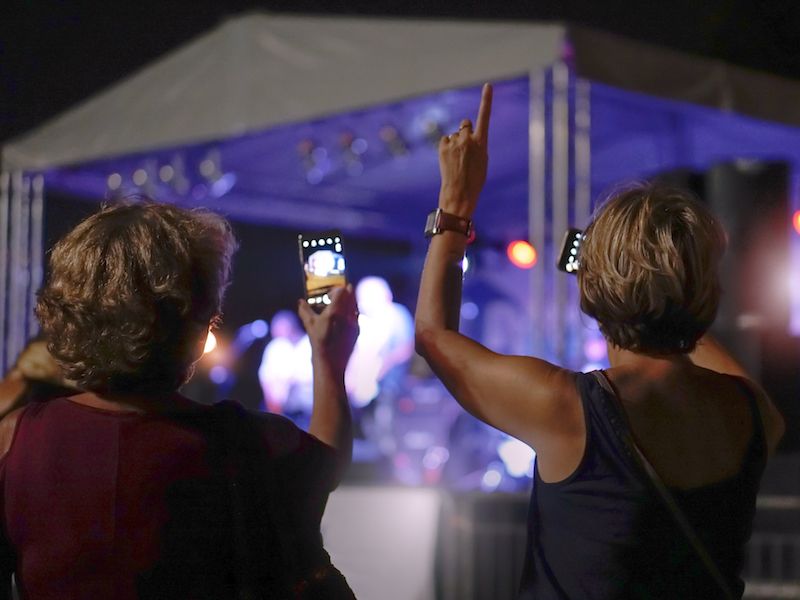
We’ve been getting excited about summer activities all year: swimming in the pool, going to the beach, and other activities that may harm your ears. That’s right, summer has many hidden dangers to your ears, either from loud sounds or the environmental situations you might find yourself in. Any noises over 80 decibels can injure your hearing, while permanent loss of hearing can take hold in pools or other bodies of water. You need to take preventative measures and be conscious of your surroundings so that you can keep your hearing safe this summer season. Keep reading to discover the summer’s 6 hidden threats to your hearing.
Use Ear Protection at Concerts
Summer is concert time, but even if you go to a venue, you still need to take care of your hearing. 90 decibels is in the danger zone for hearing injury and live music reaches this level even when you’re at outdoor venues. So regardless of whether you’re going to inside or outside shows, it’s a practical idea to wear earplugs. You can still hear the sounds with earplugs it’s just dampened slightly. If you’re going to a concert with young kids, think about getting them a heavy duty pair of earmuffs because kids have more vulnerable hearing than adults.
Your Ears Can be Damaged by Fireworks
Honestly, there are a lot of reasons to avoid fireworks in the summer. We’re not talking about the skilled 4th of July fireworks show, we mean the backyard fireworks which every summertime cause many of accidents. Along with causing hand injuries, loss of sight, and house fires, backyard fireworks can also cause significant harm to your ears since they are known to reach volume levels of 155 dB. This 4th of July, leave the fireworks to the professionals and enjoy the show from a safe and sound distance.
Hearing Loss Can be Caused by Lawnmowers
If you care about your yard, mower, edger, and trimer are your best friends. But have you ever noticed how off your ears feel when you finish, making everything sound muffled? That’s because the constant noise from your lawn tools impact your hearing over time. If you’ve ever noticed lawn care pro’s, you probably have noticed them using ear protection, next time you do yard work with noisy power equipment, you need to take a hint from them and use earplugs or earmuffs.
How to Protect Your Hearing at Beaches And Pools
Millions of people suffer from swimmer’s ear each summer, which happens when bacteria-loaded water gets stuck in your ear canal. Painful earaches and swelling result when the bacteria infects the ear. These bacteria are commonly found in lakes and rivers but could also live in hot tubs and pools if the water isn’t properly treated. As long as you have your ears treated by a hearing specialist you should be ok, and no irreversible hearing loss will happen. To be safe, when your swimming in your pool, use specialized swimmers earplugs and keep the chemical balance precise to decrease the possibility of getting swimmers ear.
Water Sports And Boats
If you love the water, summertime is beach and boating time for you. But, boat and jet ski engines can be noisy,we’re talking over 100 decibels. Continuous subjection to that kind of noise for around 15 minutes can result in long-term hearing damage. In this case also, wearing a pair of throw away foam earplugs is a smart idea.
Your Ears Can be Injured by Car Races
It doesn’t make a difference what kind of auto racing you like, motorcycle, midget, Formula 1, drag racing or stock cars. All of them can cause a huge problem for your hearing if you attend many races during the summer season. It’s calculated that volume levels can go over 120 decibels at many races, which is absolutely in the danger zone for hearing impairment. As mentioned earlier, your children should wear muffs while you should wear earplugs at least. Otherwise, you may not get to enjoy the sound of those engines in the future.
